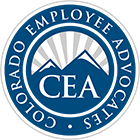You may have heard of the term “protected classes” in regard to employment discrimination and wondered what this means. In this blog post, we will provide an introduction to the subject and show how it may help you.
At-will employment
Colorado law assumes that all employment is “at will.” This means that employees are free to quit their jobs and employers are generally able to fire their employees for any reason. There are, however, some exceptions to this rule.
Some of these exceptions fall under state and federal laws that prohibit certain types of discrimination in employment. Of course, employers can discriminate between good employees and bad employees, but discrimination based on certain characteristics is prohibited.
Protected classes
This is where the concept of protected classes comes in. Under the Civil Rights Act and other federal laws, employers are prohibited from discriminating against workers on the basis of race, sex, color, religion, national origin, age, family medical history and disability.
Note that these categories can include some other characteristics. For instance, pregnancy discrimination, gender identity and sexual orientation are forms of discrimination on the basis of sex.
Colorado law provides further guidance on these categories.
In practice, this means employers cannot legally take negative employment actions against workers who fall under one of these protected classes. Such actions include refusing to hire, firing, refusing promotions and more.
Reporting discrimination
Colorado workers who feel that they have been subjected to unlawful discrimination at work can report the problem to the Colorado Civil Rights Commission or the Equal Employment Opportunity Commission. Employers are prohibited from retaliating against workers who have reported them for discrimination.
State and federal agencies can help workers who have been illegally discriminated against, but workers may want to consider taking further action. Colorado attorneys with experience in employment discrimination may be able to advise them about how to stand up for their rights.

